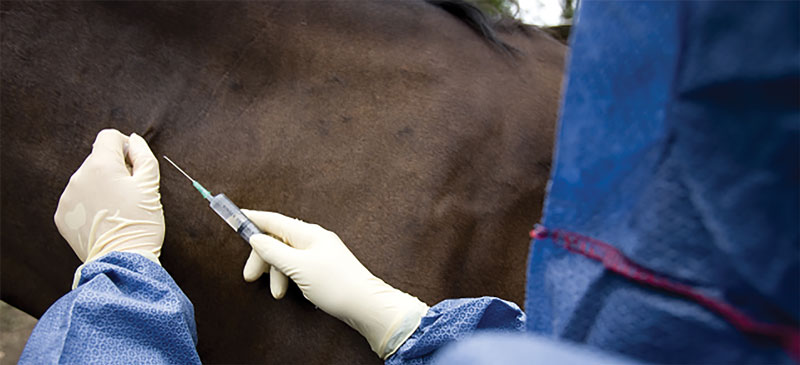North Coast Local Land Services is urging horse owners to be aware that winter 2020 may provide high-risk conditions for Hendra Virus cases in horses after the virus was confirmed in an unvaccinated horse on a property south of Murwillumbah.
BatOneHealth (batonehealth.org) is a global team of experts who have been studying the complex interactions between climate, land use, flying fox ecology, Hendra virus dynamics and the concurrent risk to horses and humans. North Coast Local Land Services staff have worked with and supported this group since its inception.
This group has recently advised that winter 2020 represents a period of heightened risk for Hendra Virus spill over into horse populations.
Louise Orr, general manager at North Coast Local Land Service, said, “The climatic and ecological conditions leading up to Winter 2011, were similar. In 2011, North Coast Local Land Services staff and local private veterinarians worked with horses on nine affected properties. The largest numbers of horse cases on record.”
BatOneHealth prediction is for similar climatic conditions and the increased possibility of spill-over events from flying foxes to horses this year. We all hope that this will not prove to be the case. However, in recent days the first case for this year has occurred on the far north coast.” said Phil.
“June to October tends to be a higher risk for Hendra infection in horses, this could be because in winter feed sources are limited and flying foxes may risk feeding on lower branches, placing them in closer to horses” said Phil.
Hendra virus is a virus carried by flying foxes (who are unaffected by the virus) and can be deadly to both humans and horses. It is transmitted from flying fox to horse, via the ingestion by the horse of flying fox bodily fluids most likely dropped from overhead trees contaminating pasture, feed, water troughs etc. The infection has occasionally been passed onto people who have been in close contact with an infected horse.
To protect both your horses and you, Phil recommends reducing the risk at the flying fox – horse interface.
“Horse owners should provide shelter or stables for horses at night, keep feed and water containers covered and not placed under trees where they could be contaminated from above. However, vaccination of horses is the single most effective means to empower horse owners to protect both their horses and themselves against Hendra virus infection.” said Phil.
Further information is available from NSW DPI www.dpi.nsw.gov.au/animals-and-livestock/horses/health-and-disease/hendra-virus
and NSW Health www.health.nsw.gov.au/Infectious/diseases/Pages/hendra.aspx

For more information about vaccinate your horse against Hendra virus., please contact your North Coast Local Land Services District Veterinarian on 1300 795 299 or your local vet.